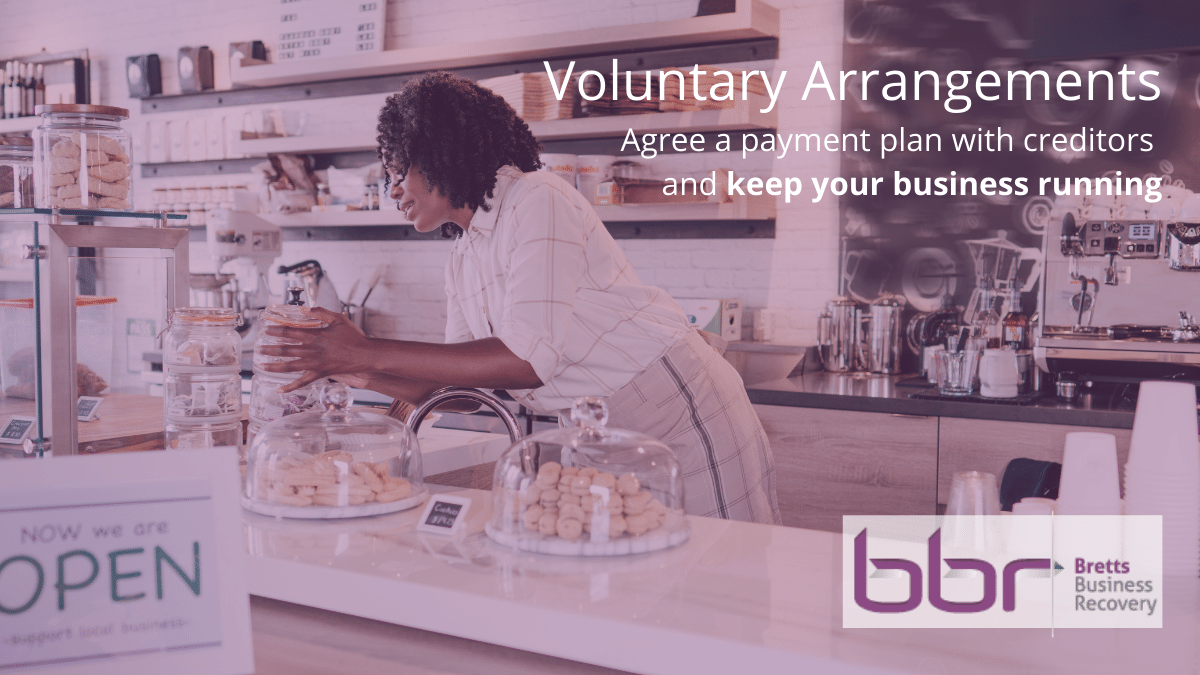Voluntary Arrangements – Company, Partnership or Individual

A legally binding agreement between a company (“CVA”), partnership (“PVA”) or an individual (“IVA”) and their unsecured creditors to repay all or part of their debt over a fixed period of time.
Negotiating more time to pay your debts while you continue to trade
A CVA, PVA and IVA (sole traders) offers a solution to businesses currently in distress, that are insolvent but still viable as a going concern. The company struggling with debts agrees a formal payment plan to repay its creditors over a period usually lasting five years.
A VA is administrated by a Licensed Insolvency Practitioner who will act in the capacity of Nominee, pending the approval of the Arrangement, and then as Supervisor once the Arrangement comes into effect. The Nominee assists the company, partnership or individual in preparing a proposal to present to the creditors. (The proposal cannot change the rights of secured or preferential creditors without their consent).
The Nominee will usually contact major creditors in advance to ascertain whether they would be likely to support the proposed VA. The Nominee sends the proposal to all creditors along with notice of a meeting of creditors at which they will be able to approve, reject or modify the proposal.
What happens
A proposal must be approved by 75% in value of creditors present or voting by proxy at the meeting of creditors. Once a VA is approved by unsecured creditors it binds all creditors, whether or not they voted or attended the creditors meeting.
Creditors who did not receive notice of the meeting are also bound by the Arrangement, although they do have a short period of time to apply to the Court for the approval of the Arrangement to be reserved. Such an application is only likely to succeed if the creditor can prove that they were unfairly prejudiced.
The Supervisor’s role is to monitor the VA to ensure that the company, partnership or individual complies with their obligations under the terms of the VA and to distribute funds to creditors. Once the VA is approved creditors will be unable to take any alternative action to recover their debt in full.
Consequences
A VA is flexible, but usually lasts for a fixed time period where the debt (or an agreed percentage) is repaid under terms agreed with unsecured creditors in full and final settlement. Repayment may be made by means of a single lump sum payment or by regular contributions from income.
The directors, partners or individual will remain in control of their business during the period of the VA but will be required to provide the Supervisor with regular accounting information. The viability of the business is demonstrated by detailed cash flow forecasts for periods up to five years.
If the company, partnership or individual fails to comply with the terms of the Arrangement the Supervisor may be empowered to present a petition for the company or partnership to be wound up or the partners or individual to be made bankrupt.
There is no obligation on the Supervisor to report to the Insolvency Service regarding the directors’ conduct as there is with liquidation and administration.
Main advantages
- The directors retain control and continue trading
- Prevents creditor pressure or other legal action to recover debts in full
- Offers creditors a chance to recuperate their debts
- Improves cashflow
- Cuts costs immediately
- It’s less costly than other insolvency procedures
- Directors are not investigated further.